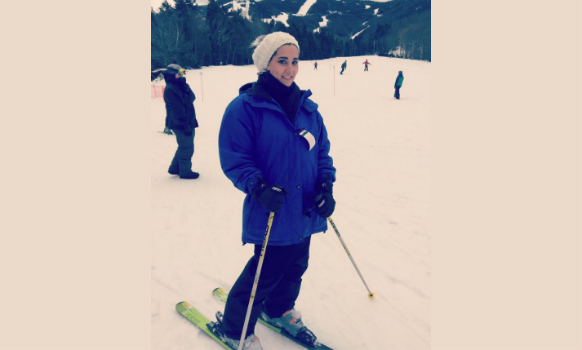
The Halachic Prenup Has Finally Come To the Haredi (Ultra-Orthodox) World
Over the last few years, there have been a number of high profile agunah cases in the media. While there is a certain shame in having the world know about your problems, there is also an added motivation to fix them. And fixing problems is the Jewish way. As more and more stories were being shared about this crisis, I wondered what we could do to prevent future agunos. I began to educate myself about the BDA halachic prenup – a concept I had heard of, but didn’t know too much about. I was flabbergasted and delighted to discover that it has been 100% successful in preventing recalcitrance in over in 25 years of use when duly signed and executed. After learning this information, we at Jew in the City spent some time working behind the scenes to get a broader number of rabbis (outside of the modern Orthodox world) to publicly back it. We published that list here.
Because the modern Orthodox community has universally adopted it, it has nearly ended new cases coming out of this community in the last few years. The question still remained, though: what about the Haredi (ultra-Orthodox) community who weren’t ready to use the BDA prenup? When and how would they address the challenges that sometimes arise in the get process?
Enter Yashar Coalition, founded by Martin Friedlander and Eli Goldbaum. It is a newly launched initiative whose goal is alleviate the agunah crisis as well as start marriages off on the right foot. Friedlander, an attorney, was first approached with the idea by an Orthodox law professor who had witnessed too many ugly court battles. Around the same time, Friedlander was dealing with a family court case which was being transferred over to a beis din. When tidying things up in court, a bystander commented on Jewish court practices in a misconstrued manner. Friedlander responded empathetically and decided too that “it’s time for us to do a premarital agreement for a broader range of the community that hasn’t been accepting it today…where there would be a healthy environment for conflict resolutions.”
Goldbaum joined the effort after one of his children went through a divorce. He expresses, “People have to understand that the pain of divorce and the collateral damage of divorce is something that has to stop.” In order to get top Haredi rabbanim on board, including Rav Shlomo Miller, Rav Hillel David, Rav Yaakov Forchheimer, Rav Moshe Sternbuch and Rav Noach Oelbaum, Yashar Coalition initiated a study, done by Dr. Pelkovitz from The Einstein School of Medicine, to illuminate how serious get refusal is for both the parents and the children.
Growing up in a household with drawn-out divorce turmoil has major, lasting effects, which hover over children well into their adult years. As Goldbaum sums it up, “The reality is that today the children are the ones who suffer.” Yashar Coalition is working on keeping the kids as healthy and separate from the divorce as possible.
While this prenup adds new elements that the BDA prenup does not have – like a shalom bayis clause and an agreement on how the children will be raised religiously, the document is a coup for the BDA prenup. In the past, some haredi rabbinic leaders found fault in the BDA prenup. The three main issues they cited were: we shouldn’t discuss a divorce at the beginning of a marriage, we shouldn’t have the husband have to pay money for not giving the get – this may make the get a get meusa (a forced get), and we should not involve a secular court. Quite remarkably, the Yashar Coalition prenup has all of these elements in it. So while these leaders wanted to add the extra clauses, as you can see below, an added benefit of the Yashar Coalition agreement is that there may be a tacit support for the BDA prenup as well.
Here are some of the highlights of the agreement:
- A specific Beth Din is designated to oversee the separation/divorce process. Naming a beis din from the beginning of the marriage, to where the couple would take any disputes, is a crucial part of this process. According to rabbanim we spoke to who work with the BDA prenup, 90-95% of the cases they see are just about the couple arguing over venue. With this detail ironed out at the start of the marriage, a large number of acrimonious divorces will be avoided.
- Attorneys and toanim must follow Protocols for Professional Conduct before Beth Din. One of the benefits of the BDA prenup is that the couple works with the BDA – a highly professionally run organization. Over the years, I have often heard of shady Jewish courts who are in someone’s pocket. With professional protocols in place, the beis din that is being used will have checks and balances.
- Beth Din will determine whether Shalom Bayis (reconciliation between the husband and wife) is a viable option. Sometimes only one spouse wants the divorce, while the other one wants to work on reconciliation. In cases like these, the beis din will send the couple to a highly respected mental health counselor to check the legitimacy of delaying of the divorce, if one party requests that and see if there is abuse.
- The parties agree to Protocols of Kosher Home and Sabbath Observance in Custody Matters (i.e., that their children will continue to be raised in a Kosher and Sabbath observant home. It’s natural for a husband and wife to start off on the same page, religiously and then end up distant later on. One spouse may decide not to be as observant as he/she used to, and that is okay. What the Yashar Coalition stipulates in their agreement is that one must abide by the terms that were set forth in the contract regarding keeping their kids’ religious life consistent. “These are things that the people can modify to their own standards but that they agree in the beginning how the family will be raised and what observance in regard to the raising of the children,” Friedlander explains.
- Beth Din will replace, within 30 days, any dayan unable or unwilling to serve on its panel.
- Beth Din will schedule the initial Beth Din session within approximately 2 weeks of request by either party.
- Within its first session, Beth Din will set an interim payment amount as is necessary for the continuation of the household, and for the children to continue to attend yeshivos. This part is similar to the BDA prenup which has its roots in the Nachalas Shiva agreement from the Middle Ages. If the husband insists on staying married, his marital responsibilities, including financial support, continue.
- Beth Din may continue to hear testimony, consider evidence and arguments and arrive at temporary decisions in the absence of a defaulting party who refuses to appear before Beth Din .
- Beth Din must record all proceedings at its sessions.
- Beth Din’s award may not be appealed, but the award may be submitted to a court of law for enforcement. Like the BDA prenup, this agreement can be enforced in a secular court.
- Except for the Beth Din fees, which are split evenly among the parties, the defaulting party shall pay all fees necessary to enforce the rulings of Beth Din.
- The parties agree not to resort to Heter Meah Rabonim, Heter Nisuin or Bitul kedushin if the wife is willing and able to accept a Get. Over 1000 years ago, Rabbeinu Gershom wanted to stop the unfair practice of a husband divorcing a wife without her consent. While he put this enactment into place, a caveat was that the husband could gather 100 rabbis to overrule this enactment and force the wife to accept the get. This concept of Heter Meah Rabonim has been abused in some cases and is not allowed in the Yashar Coalition agreement.
- The proceedings should be finalized as quickly as possible: 6-8 months for non-custody cases; 1 year to 18 months for cases involving child custody.
“We worked with rabbanim, with mental health professionals as part of the team, attorneys and business people actually worked on this agreement to make it as strong as possible,” Goldbaum states. They make it crystal clear that this agreement should not be signed at the chuppa or wedding, but prior to it. This enables the couple to actually sit down together and discuss it in detail before the high of the wedding segues into real life. Goldbaum views this agreement as a necessity for a secure and successful marriage, “The same way you buy life insurance or home insurance, you buy marriage insurance.”
Yashar Coalition is trying to erase the dangerous reliance on secular courts and judges who create their own definitions of what frum life is about and their own image of what Jewish, marital bliss should look like. Friedlander says, “What we do is we define it…it’s more a definition of what [Jewish marital harmony] is,” that is outlined in the agreement. The coalition is proud to claim it as a gender-neutral agreement, which handles the get issue for both husband and/or wife with no bias, only dignity. At this point as a number of very big batei din have told us, it is no longer a question of [whether or not the agreement is] halachically acceptable. It is halachically acceptable, it is universally acceptable, and now it’s matter of getting the word out to people.”
As this is very new, we don’t know yet how this will play out compared to the tremendous success of the BDA prenup, but we can hope and pray for good news.
This article was written in conjunction with Efrat Malachi.
If you found this content meaningful and want to help further our mission through our Keter, Makom, and Tikun branches, please consider becoming a Change Maker today.







